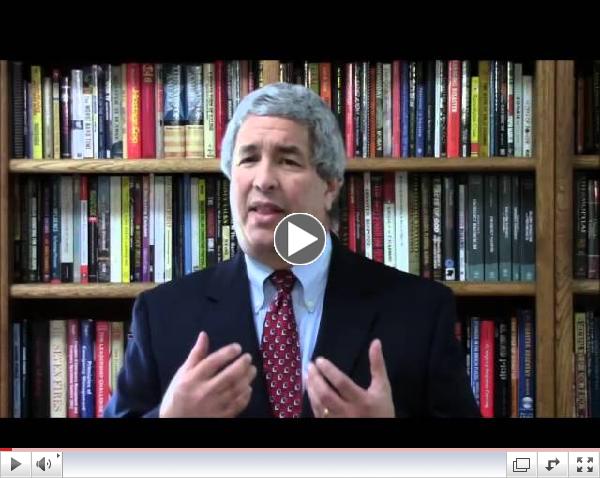|
Exploring Emergency Management & Homeland Security
|

FEMA's Forgotten Civil Defense Role
by Timothy (Tim) Riecker
A
recent article posted to the
Homeland Security Affairs Journal of the Naval Postgraduate School's Center for Homeland Defense and Security is quite thought provoking. The author, Quin Lucie, an attorney with FEMA and former Marine Corps Judge Advocate, posits in his article, How FEMA Could Lose America's Next Great War, that FEMA's legal responsibilities for civil defense have been all but forgotten, potentially endangering the welfare of our citizens and our ability to sufficiently mobilize our industrial war complex in the event of a substantial war.
The article has a lot of great depth on the history of civil defense, FEMA, and its predecessor agencies, and the movement of FEMA away from that role, first in favor of work aligned to various mission areas associated with natural hazards, then eventually including human-caused disasters and terrorism. The author certainly isn't wrong that civil defense is a 'hazard' that we have left out of our all hazards lexicon.
There are arguments that can be made supporting FEMA's persistence in their civil defense role, with much of the capability they have developed for their own mission and supported for others being truly applicable to all hazards, including civil defense. We can name myriad programs and capabilities, such as continuity of operations/continuity of government, incident management teams, preparedness standards, and specialized response teams. Each of these would absolutely have a role in supporting civil defense. It seems one of the biggest gaps, however, is in planning, where there is little meaningful inclusion of specific civil defense missions, activities, and capabilities; as well as the association of established capabilities and authorities to civil defense missions
___________________________________________
___________________________________________
Tim Reicker is a founding member, partner and principal consultant with Emergency Preparedness Solutions, LLC, a private consulting firm serving government, businesses, and not for profit organizations in various aspects of emergency and disaster preparedness.
|
|
Bernstein Crisis Management
|
 Tips To Help You Sort Through Today's Polarized Publics Tips To Help You Sort Through Today's Polarized Publics
By Erik Bernstein
More and more often while working with clients we see examples of how extremely polarized audiences have become today. While gauging public reaction to your crisis communications is a recommendation any expert will give you, fewer mention the fact that you may see completely different responses to the same messaging from your various audiences. Let me give you an example...
An organization runs into trouble which results in national news coverage and has to publish a corporate apology. When they go to listen, they are met with a flurry of mixed reactions. On Twitter their response is being eaten alive, with a heavy dose of trolling added in for good measure. But, over in the comments on CBS and NBC coverage of the issue the public seems cautiously receptive and prepared to move on. Meanwhile, a post mentioning the situation pops up on the local Nextdoor forum and, while there are some vocal doubters, the discussion has quickly moved on to the positive experiences former employees who live in the area had there. To round things out, the direct email campaign to customers and business partners is being met with responses sharing understanding and minor concerns which customer service staff is actively addressing.
A bit confusing, right?
Yes, you absolutely want to gauge the reaction of anyone who isn't outright trolling you, and yes I will always advise taking measure of even known opponent's reactions to crisis messaging. However, you need to understand that each platform or medium comes with its own audiences, that those audiences are often tremendously polarized in terms of their world view and beliefs, and that this polarization means the most extreme of reactions in either direction must be taken with a large grain of salt. In fact, I'm fully convinced that if Shakespeare himself came back with a Master's in Public Relations and authored your messaging, some people would STILL tear it apart because that's how the outrage machine works.
Understand the polarity of your publics, recognize which reactions are actually genuine or important, and avoid letting the "yes" crowd make you overconfident. That's how you successfully listen to an audience today.
© 2019 - Erik Bernstein
Erik Bernstein is Vice President of Bernstein Crisis Management, a specialized firm dedicated to providing holistic strategies for managing crisis situations.
|
|
|
| The Great Chicago Fire 1871 |
This short presentation on the Chicago fire in 1871 does a great job of establishing the context for the fire as well as a detailed account of the firefighting efforts. As Peter Hoffer indicates in this month's reviewed book, Seven Fires, understanding the context for a disaster is important, not only with respect to response but especially in reconstruction. |
The following are excerpts from my blog
Canton on Emergency Management. Please visit my blog to see the rest of my articles.
Killing the messenger supposedly went out of fashion years ago, yet in our stupidity we still attack the powerless representatives of major companies.
|

M
y Blogs
Follow Me
|
|

Welcome to the June edition of Emergency Management Solutions.
This month I share some insights from my friend, speech coach Patricia Fripp, on how to improve your presentations with just a simple strategy. Tim reexamines FEMA's historical role in civil defense in light of our current world situation. Erik demonstrates the fallacy of assuming that a single social media message can reach all audiences.
Regards,
|
|
_
________________________________________________
9 Ways to Improve Your Presentation
Know When To Stop Talking
_________________________________________________
Worried about holding your audience's attention? Want to improve your presentation skills? Here's a very simple method practiced by professional speakers: STOP TALKING!
It sounds counterintuitive but it's highly effective. It does require you to adjust how you think about your presentation. Contrary to what you believe, a good presentation is not a monologue.
According to professional speech coach Patricia Fripp, a good presentation is a dialogue between the speaker's words and the audience member's inner dialogue. A pause in speaking helps build an intellectual and emotional connection with your audience by allowing them time to process what you have just said. It increases audience engagement and prepares them for what comes next.
Not only professional speakers make effective use of pauses. Actors, comedians, and musicians also make use of pauses to increase emotional connections with their audiences.
______________________________
_______________________
________
If you are having trouble viewing my featured article, try clicking on the link at the top of the page. You can always find my articles in the white paper section of my blog site, Canton on Emergency Management.
|
|
Resources
Impact360 connects researchers, practitioners, needs, and resources to create problem-focused professional communities that can design scalable solutions. The alliance facilitates inclusive problem solving that emphasizes needs-based cycles of knowledge and action focused on natural hazards and disasters.
Making Prevention a Reality: Identifying, Assessing, and Managing the Threat of Targeted Attacks
This report published by the FBI Behavioral Analysis Unit provides a practical guide for assessing and managing the threat of targeted violence. It contains concrete strategies to help communities prevent these types of incidents.
Risk Communication Strategies for the Very Worst of Cases
A global catastrophic biological risk-such as worldwide pandemic capable of severely impacting all humans-might seem like a Hollywood scenario, but the possibility is a real one. This report from the Center for Health Security at John Hopkins University offers suggestions for how to communicate such risks to policymakers and the public if such an event were to occur. The report examined existing attitudes in science and practice and relevant historical contexts to create a set of recommendations for effective communication that could drive tangible action in the event of an existential global health crisis.
___________________________________
Professional Development Opportunities
July 14-17, 2019
Broomfield, CO
The theme of the 2019 Workshop will be Convergence. Explore how we come together to study hazards and disasters, apply the knowledge that's generated, help one another, build community capacity, implement meaningful policy, and envision a future that leads to reduced disaster risk and improved social well-being.
Nov. 15-20, 2019
Savannah, Georgia
The goal of the IAEM Annual Conference is to improve knowledge, competency level and collaborative skills. IAEM accomplishes this by attracting relevant high-profile speakers to address current topics and practical solutions.
|
|

Sev
en Fires: The Urban Infernos That Reshaped America
We sometimes tend to view disasters as isolated events that have distinct beginnings and ends. An event occurs, people respond, and then recover, creating better conditions than existed before the event.
Hoffer's book reminds us that disasters, in this case catastrophic fires, are influenced by the social conditions that precede them, conditions that in many cases make the disasters inevitable. Further, while we have created a mythology around recovery, the truth is often much different and the social impacts of disaster can have far reaching consequences.
Hoffer examines seven fires that he believes have had an impact on the development of America. His focus is not so much on the response, all though he takes a very fire-centric view and does a good job of presenting the facts and timeline for each fire. Rather, he sketches the social conditions that led up to each fire and the long term results. For example, the Chicago fire of 1871 led to the development of skyscrapers and created the conditions for future labor strikes. Some of his examples may be a bit of a stretch but he backs up his assumptions with some compelling facts.

______________________________________
|
Emergency Management: Concepts and Strategies for Effective Programs
Second Edition
AVAILABLE NOW!
|
|
Need a speaker for your next conference? I offer keynotes, seminars and workshops.
 |
|
Three Reasons Why I'm the Right Speaker for Your Conference
|
|
|
Speaking Engagements
Learning From The Past: What We Remember, What We Forget
November 19, 2019
Savannah, GA
|
|
| |
|